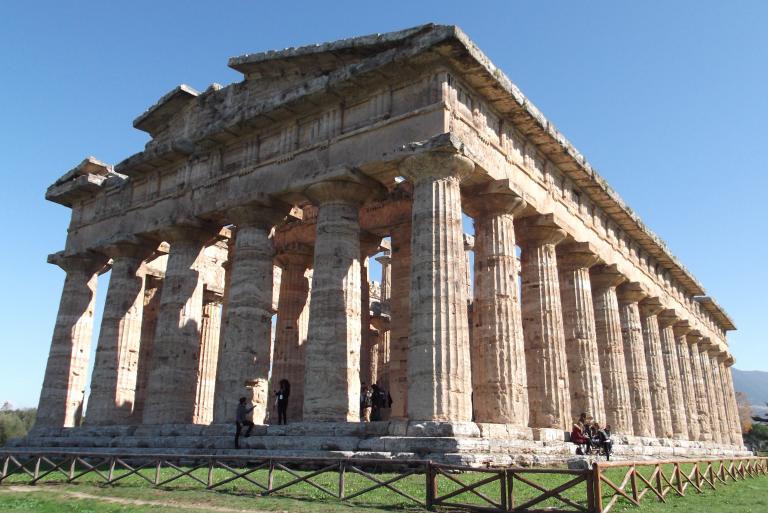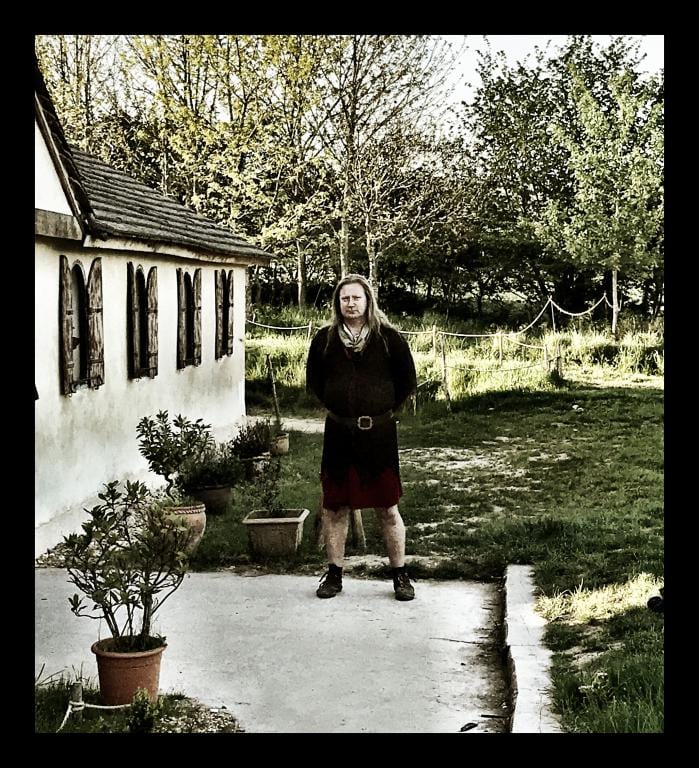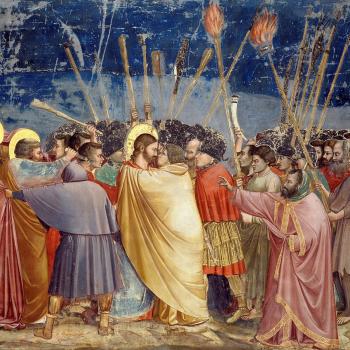Pax Deorum
Being the First Book of the Wanderer
(previously unpublished © Ian Chambers 2018)

The following is taken from the privately published work Pax Deorum, and introduces the philosophy behind the working relationship between deity or spirit and operator in the Classical Roman period which informed early medieval Europe. The formula is further expanded upon throughout the book and leads elegantly into the subsequent (and as yet unpublished) companion and follow up, Pax Diaboli.
All that is gold does not glitter,
Not all those who wander are lost;
The old that is strong does not wither,
Deep roots are not reached by the frost.-J. R. R. Tolkien, The Fellowship of the Ring
To the mind of the ancestral peoples, the harmony that existed between the living, familial, collective peoples and the nebulous order of the unseen, other world, which so evidently informs and partakes of the cosmos around them, was a careful balance. At the very heart of the most fundamental relationships between a peoples and any sense of a spiritual impulse is reciprocity.
Reciprocity and fairness are so essential to the makeup of human nature, from the earliest Homo Sapiens, that our approach to relationships is founded upon a moral understanding that our interactions are of a necessary give and take. Indeed, so innate is this idea of fairness in our species that we may develop an inequity aversion within our emerging ideas of morality as early as the age of 3 years old (Li et al., 2016). So frequent is the childhood plea of “it’s not fair”, and our psyche continues to develop around the notion of what we can accept as any exchange that maintains an equilibrium.
Furthermore, the survival and, perhaps, success of our species of modern human being is arguably dependent upon primitive notions of co-operation. In his seminal book Sapiens: A Brief History of Humankind, Yuval Noah Harari (Hebrew University of Jerusalem) persuasively discusses the cognitive revolution which gave mankind the impetus to project itself forward as a collective, working co-operatively and favouring cohesiveness over competition in order to thrive (Harari, 2014). So powerful is this idea, and comparable models exist today amongst tribal peoples such as those explored by the indigenous rights activist and documentary maker Bruce Parry (Parry, 2007), that we may say with confidence that our success depends upon a moral imperative toward reciprocity for collective and mutual benefit.

Whilst our present time would suggest a rise in the self-interest model, from the Neoliberal, free-market capitalist project of the 1980s, to the Presidency of Donald Trump, it is interesting to note that there has been long-term studies into the role of reciprocal fairness in economic situations. One paper, highlighting over 20 years of experimental theoretical simulations, or ‘games’, to unpick the motivation for economic behaviour, takes a rather more optimistic position in concluding that the application of reciprocal fairness models may be successfully used to closely analyse real-world application (Fehr and Schmidt, 2003).
This idea of reciprocity achieved a sophisticated and complex manifestation within the psyche of many ancient peoples, demonstrated throughout their cultural, social and religious behaviours. One such highly civilised and culturally structural rendition occurred during the Classical period of antiquity, most particularly in Imperial Rome. Whilst the machinery of the Roman state may have corrupted its religious urge for political advantage, the culture of the peoples remained faithfully religious at its very heart.
The religious and spiritual concepts of Rome required the model of reciprocal fairness to extend throughout their entire social order. In this manner, the whole body of the Roman people understood that equal and fair exchange was necessary, in principle if not always actuality, in order to maintain unity and cohesion. Once more, it is co-operation that depends upon, and is cohered behind, a cultural collective, an egregore. In consolidating the identity of the peoples of Rome, the myths coalesced to impart congruence and allowed the social group to expand, all the while working for a common good. The moral guidance for this collective benefit is everywhere underscored by the idea of equality, mutual exchange and fairness.
Thus, was the whole nourished by and contributed to the egregore, the national psyche. The tutelary deity and deities of the people, and associated myths, encompass all within the embrace of the body proper, providing an essential spiritual and psychic basis upon which their cultural form may operate, and allowing recourse to the same for moral guidance whenever the people were in need.
The maintaining of harmony between the spiritual and socio-politcal body of peoples was, therefore, vital to the continuance and safe-keeping of the community. Such was the sophistication of the Roman culture that they were able to vocalise such philosophical concepts that their forebears, and contemporaries, were instinctively compelled to adhere to. Like city states before and since, the Romans had developed complex and subtle expressions of their cultural heights, giving name to that which was understood even by primitive minds. The formula to which we refer was called, by the Romans, do ut des – I give that you might give – which was a constituent part of not only state religion, but more particularly in magic (Luck, 2006).
Whilst this notion may have been self-evident to past and present people, the Romans added a certain legal quality to it, with more than a hint of the contractual to the relationship. This formalising of the principle of reciprocity does denude the idea of some of its charm, something that was not lost of the Pauline Christians. Nonetheless, it does mark an historical moment when a people were self-aware enough to cogently enshrine such notions into a formula such as do ut des.
In understanding that the gods and spirits of the world around them would require the mutual attention of the people, the Romans undertook to establish a formal covenant to this effect: the pax deorum. This referred to the state of harmony between the spiritual forces and the cultural body of the Roman populace and was established upon the comprehension that the gods and their myths would be kept immortal and exalted so long as their stories were told, their rituals enacted and their wisdom observed. The Romans equally understood that, to ensure the continued immortality and august status of their spirits, the keeping of the festivals, ceremonies and observances, was to invite the favour of the same gods and spirits. In return for keeping the customs and correct religious practices, the gods would guide, protect, reward and ennoble their worshippers.

The Latin pax has a common root to two significance words in the English language – peace and pact. Both of these originate in the Proto-Indo-European language from a meaning of ‘fasten’ or ‘to bind’, which gives us a clear understanding of what is intended. Our common definition of pact includes a bond, or agreement, contract or covenant, all of which is suggestive of two or more things being bound together figuratively under certain conditions being met. Interestingly, peace comes from the same stem, and is understood best through its counterpart, war. Indeed, peace may be thought of as the absence of conflict, and therefore the sense of a treaty, compact, or agreement that combative or negative conditions are halted. In this sense, the opposite of the pax deorum, and which was to be avoided at all costs, was the ira deorum, or ire/anger of the gods – which might easily be equated with the idea of war.
In both cases, the idea of the covenant lends itself perfectly to our understanding of the idea and its inherent dependence upon the divine harmony which is sustained by the loyalty to the bond kept between gods and men for mutual benefit. This posits an interesting situation whereby the gods are not only exalted for their own sake, or because of an immature notion of godhood, but as the recognised aspect behind incorporeal, natural, mythological, spiritual and psychic occurrences. In this sense, the gods may be appeased, if they are wrathful. But the Roman notion is not one of assuaging the gods or somehow appeasing them, as though some terrible vengeance will be wreaked upon them for neglecting their faithful duties as in some Abrahamic traditions. Whilst there is an element of keeping the gods happy and from becoming irate, which would shatter the harmony and balance, the focus is much more strongly upon reciprocity, spiritual fairness and mutuality. After all, it can’t have been lost on the Classical thinkers of the era that a forgotten god is an utterly diminished and impotent deity with little or no power whatsoever.
Bibliography:
Fehr, E. (University of Z. and C. and Schmidt, K. M. (University of M. and C. (2003) ‘Theories of Fairness and Reciprocity – Evidence and Economic Applications’, Mathias Dewatripont, Lars Peter Hansen and Stephen J Turnovsky, Volume 1, p. pp 208 – 257.
Harari, Y. N. (2014) Sapiens: A Brief History of Humankind. English. New York: Harper.
Howard, M. (2004) The Book of Fallen Angels. Capall Bann Publishing.
Li, J. (Chinese A. of S. et al. (2016) ‘Young Children’s Development of Fairness Preference’, Frontiers in Psyhology. Available at: https://dx.doi.org/10.3389%2Ffpsyg.2016.01274.
Luck, G. (2006) Arcana Mundi: Magic and the Occult in the Greek and Roman Worlds. The John Hopkins University Press.
Parry, B. (2007) Tribe: Adventures in a Changing World. First. Michael Joseph.
Tolkien, J. R. R. (1954) The Fellowship of the Ring. First. George Allen & Unwin.














